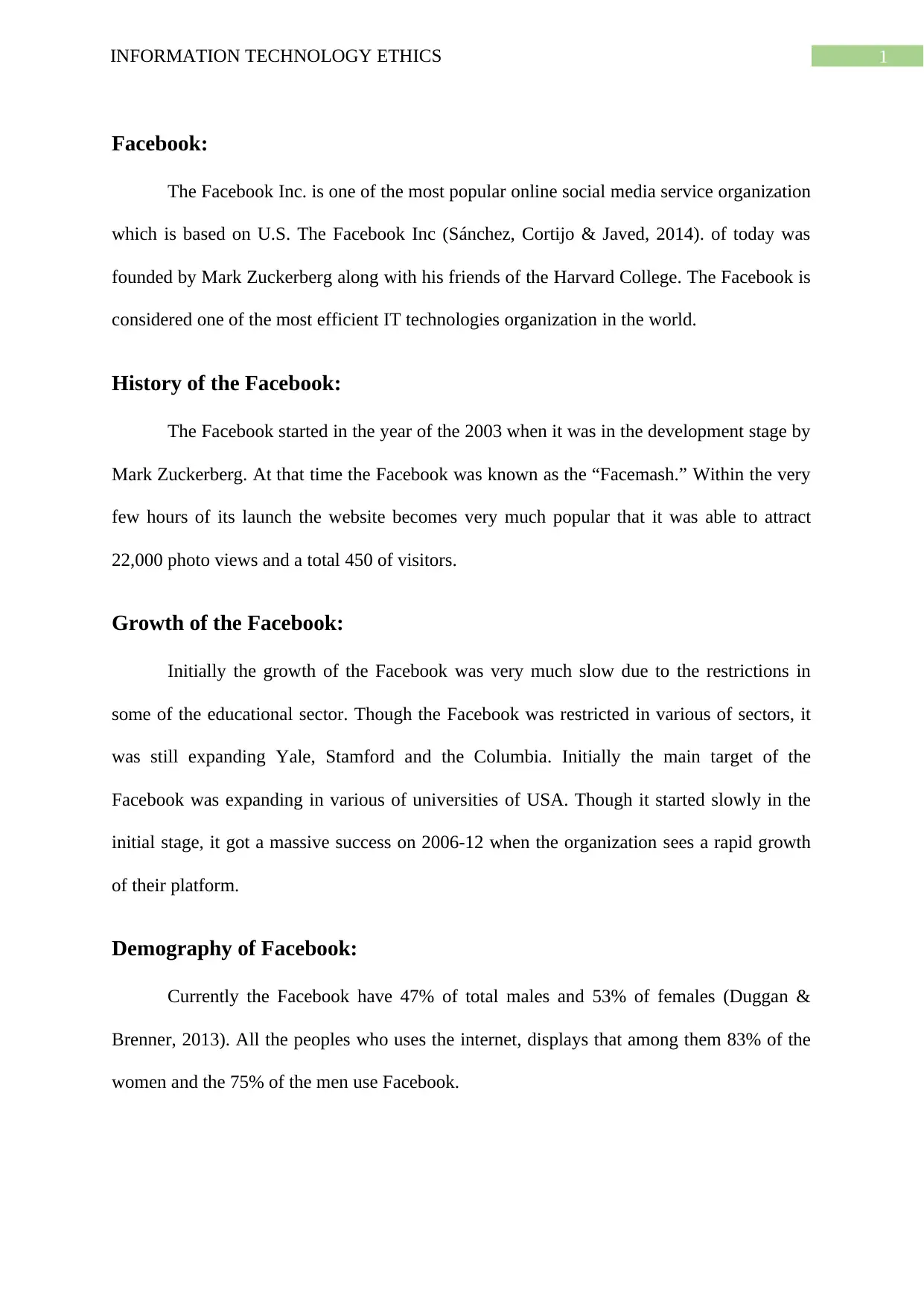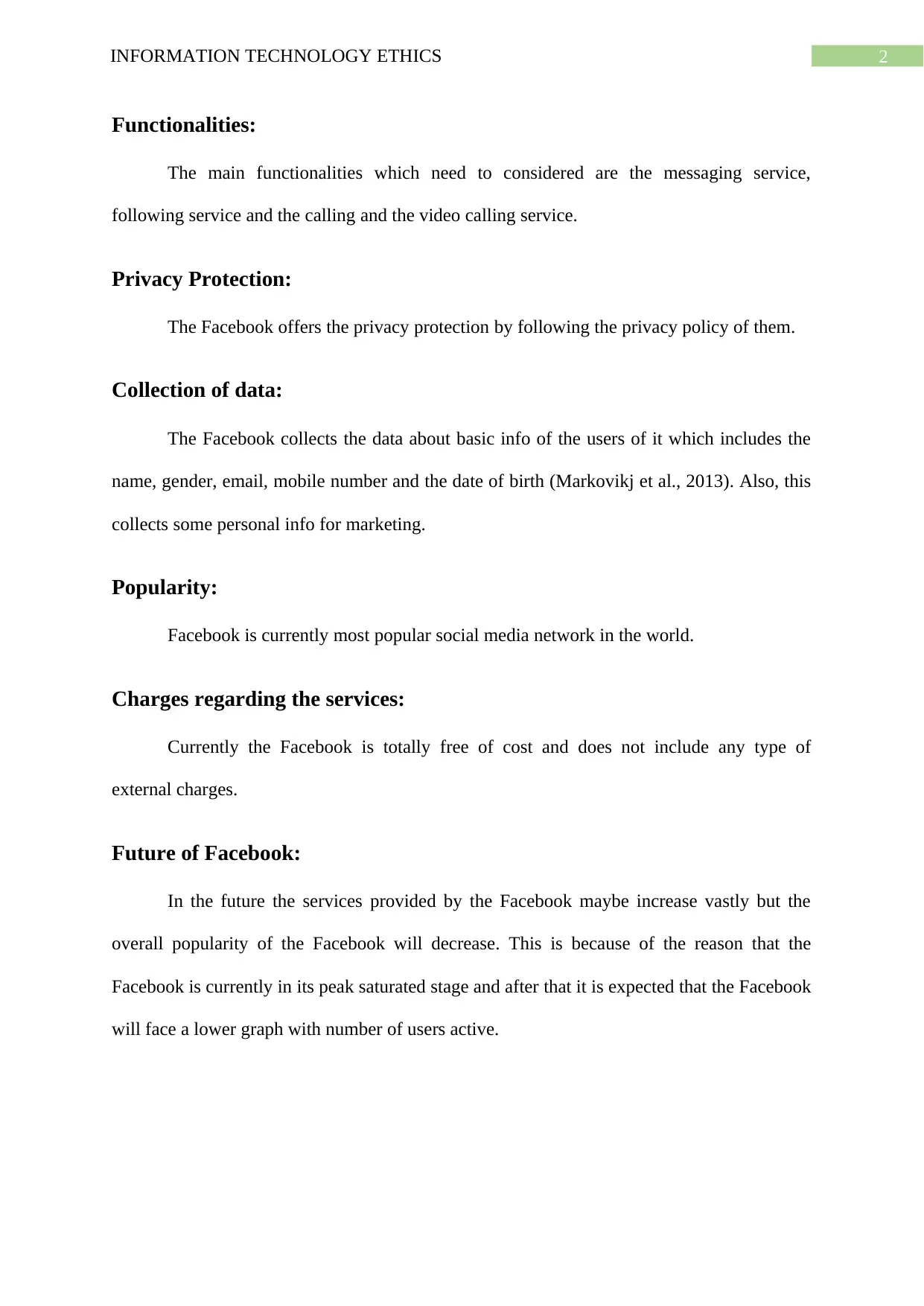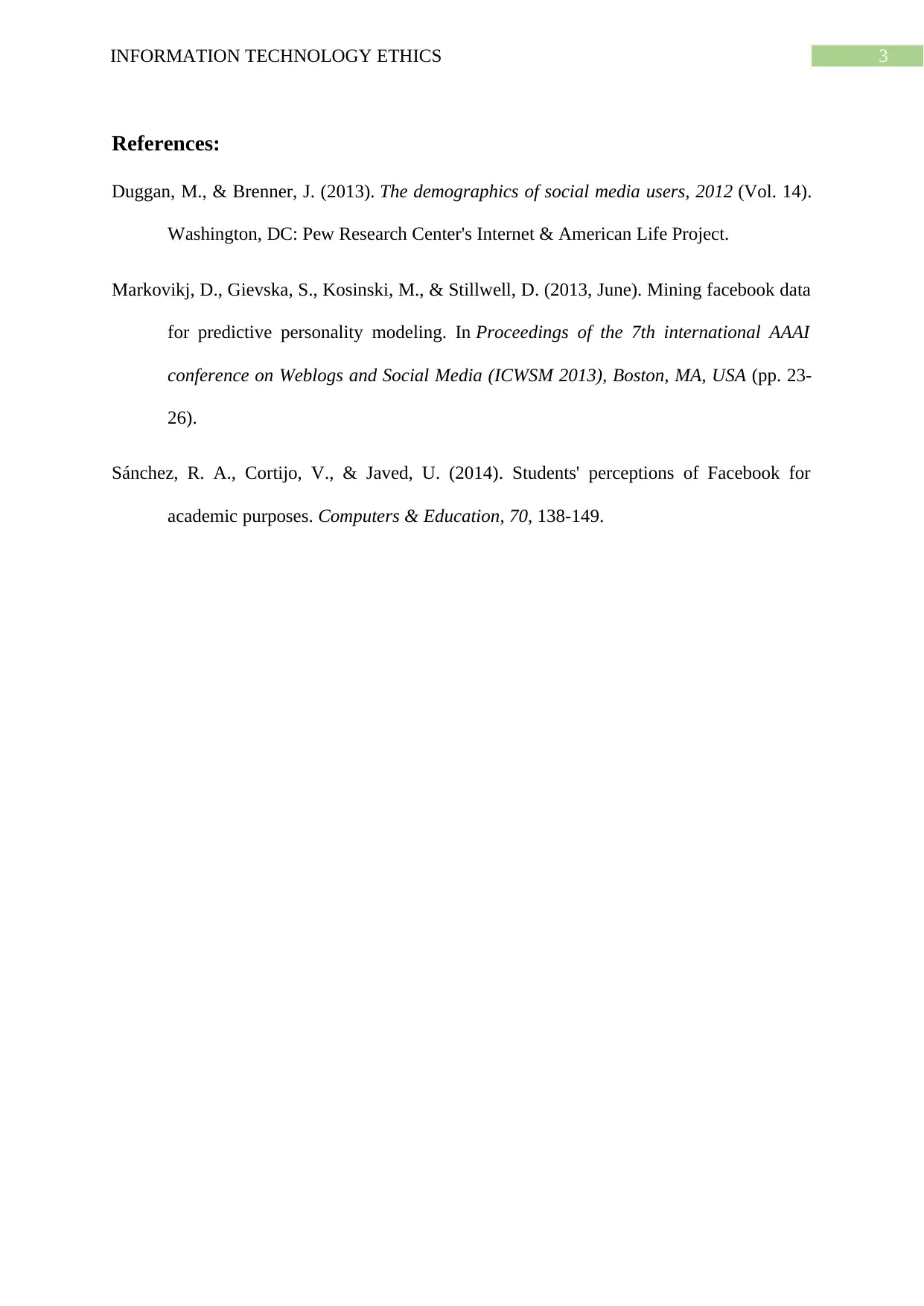A Comprehensive Report on Information Technology Ethics
VerifiedAdded on 2023/04/26
|4
|637
|412
Report
AI Summary
This report provides an analysis of Information Technology Ethics, using Facebook as a case study. It begins with a brief history of Facebook, tracing its origins and growth from its inception as "Facemash" to its current status as a global social media platform. The report explores the demographics of Facebook users, detailing the gender distribution and the percentage of internet users who actively use the platform. It then examines the functionalities of Facebook, including messaging, following, and video calling services, and discusses the privacy protections offered by the platform, including the data collection practices and privacy policies. The report also addresses the popularity of Facebook, its current free-of-cost services, and provides insights into the potential future of Facebook, suggesting a possible decrease in overall popularity due to market saturation. The report references several sources and includes details on the collection of user data and provides a comprehensive view of Facebook's role in the context of IT ethics.
1 out of 4











![[object Object]](/_next/static/media/star-bottom.7253800d.svg)